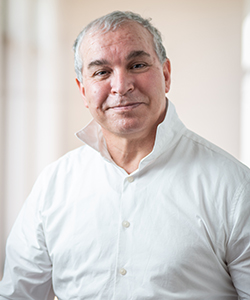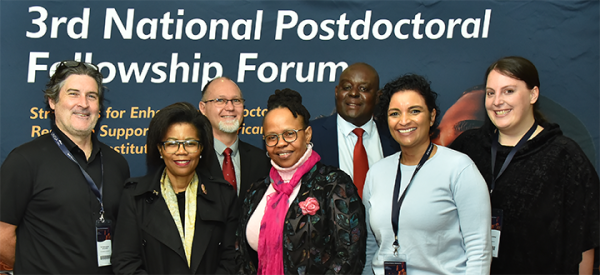
Research into the use of nanotechnology to meet the Sustainable Development Goals (SDGs) set by the United Nations has won Prof Malik Maaza, incumbent of the UNESCO-Unisa-ITLABS/NRF Africa Chair in Nanosciences and Nanotechnologies (U2ACN2), the 37th Khwarizmi International Award (KIA).

Prof Malik Maaza, incumbent of the UNESCO-Unisa-ITLABS/NRF Africa Chair in Nanosciences and Nanotechnologies (U2ACN2)
This annual award recognises outstanding achievements in research, innovation and invention in fields related to science and technology. Countries from all over the world are annually invited to submit entries for the awards.
It was the first time that the Presidency of the Republic of Iran and the Iranian Organisation for Research, Sciences & Technology (IROST) awarded an African scientist. Maaza received the award during a ceremony in Tehran, Iran. The award was presented to the winners by His Excellency, the President of the Islamic Republic of Iran, Masoud Pezeshkian.
Maaza investigated the use of nanotechnology innovations such as smart windows and smart paint that can curb heat and the use of carbon dioxide to harden cement to help create sustainable cities in a rapidly urbanising environment. His research focused on the use of science, technology and innovation (STI), as well as research and development (R&D), to meet numerous challenges related to growing urbanisation around the world, especially in Africa and Asia, where the pace of urbanisation is the fastest.
Approximately 55% of the world's population currently lives in urban areas. By 2050, this number is estimated to increase to 90% in Africa and Asia – a total of about 2,5 billion people. This significant rise in the urban population, with the concurrent impact of climate change on rising temperatures, holds numerous challenges to the basic water, energy and health requirements of urban areas. These are the challenges the United Nations aims to address with its 2030 Sustainability Agenda. Maaza believes STI and R&D could be key to solving some of these challenges.
Smart windows that use vanadium-based thermochromic nano-coatings can, for example, regulate solar heat radiation without requiring any additional energy input, thus enabling green air-conditioning. The use of nano-fluids as advanced coolants can also contribute to the recovery of wasted heat.
Other recent research has also demonstrated that carbon dioxide can be utilised to bioengineer several multi-functional carbonates. These carbonates exhibit properties such as effective fertilisation response, high reflectivity similar to radiative cooling paint and significant porosity and hardness, making them a promising supplementary compound material for the cement industry.

Prof Maaza received the 37th Khwarizmi International Award (KIA) earlier this year.
The purpose of this study was to highlight the properties and advantages of using these technologies to address everyday challenges in an urbanising environment, Prof Maaza said. The research forms part of the U2ACN2 objective to address urgent societal needs in the water, energy and health sectors in Africa. In 2023, the U2ACN2 also received the IUPAP Kennedy Reed Medal for outstanding contributions to the Enhancement of Physics in Developing Countries. The organisation bestows this medal every third year. The medal winner receives €3000 during a convening of the IUPAP general assembly where the recipient has to present a paper on awarded work.
The 2030 Agenda for Sustainable Development, adopted by all United Nations member states in 2015, provides a shared blueprint for peace and prosperity for people and the planet, now and into the future. At its heart are the 17 SDGs, which are an urgent call for action by both developed and developing countries in a global partnership. They recognise that ending poverty and other deprivations must go hand in hand with strategies that improve health and education, reduce inequality and spur economic growth all while tackling climate change and working to preserve our oceans and forests.
* By Hanli Wolhuter, Communication and Marketing Specialist, College of Graduate Studies
Publish date: 2024/11/05